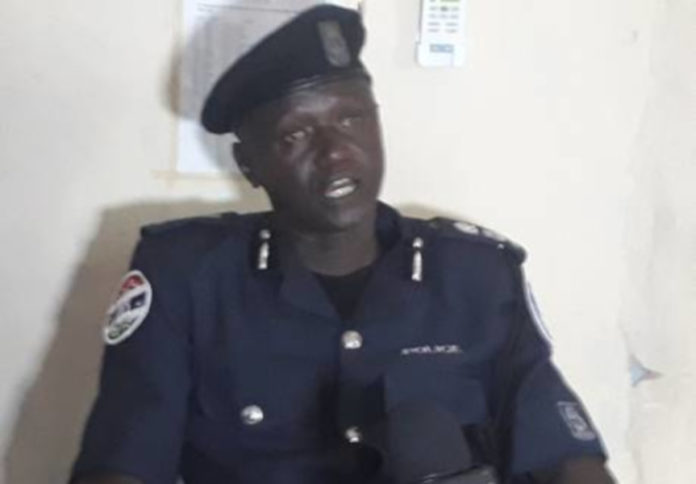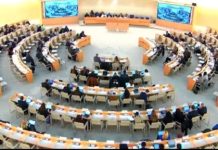By Lamin Fatty
The police and army commanders in Basse have both cautioned the people of Garawol to respect law and order after the Alkalo of the area ordered a Koranic teacher to pay a fine of D10,000 for leading a congregational prayer for so called slaves during Tobaski day.
Police Commissioner Ensa Badjie on Monday, 10th August summoned a meeting between supposed slaves and free born natives of Garawol in the Upper River Region.
There was a dispute between the two groups and the matter was reported to the police. This came after the Alkalo ordered that an Arabic school teacher who led the supposed slave class in a congregational prayer held on the Tobaski day to pay a fine of twenty thousand dalasis (D20,000) or else leave the village. The Arabic teacher refused to pay the fine and reported the matter to the police for action to be taken.
The meeting convened by the Police was attended by security chiefs in the Upper River Region including the commander of the Basse military barracks, the Commissioner of the Gambia Immigration Department (GID), the officer commanding the PIU in Fatoto, the director of the National Intelligence Agency (NIA) and police operations commander of the region and a representative of the regional Governor’s office. Gambanaxu, (the supposed slave class) and the so-called freeborn. The regional President of Gambanaxu organization was also present.
Commissioner Badjie alias Jesus said he summoned the meeting purposely to warn the two parties to maintain peace and desist from taking the law into their own hands.
“I called this meeting and invited my fellow security chiefs purposely to warn these (two) parties from Garawol for peace to prevail. Let them desist from taking the law into their own hands because it came to my attention that the alkalo of Garawol and his people asked a man to pay D20,000 fine or else leave the village for leading the Tobaski congregation prayer for the Gambanaxu people” Badjie said.
The police chief added: “This is unlawful and I would never compromise such unlawful acts during my time as the Commissioner of Police in this region.”
Lieutenant Colonel Sarjo Jarju, the army commander of the Basse military barracks told the two parties that they are all equal before the law, adding there should be no discrimination between them in the name of tradition.
“You have to know that we are all equal before the law, therefore, there should be no discrimination between us in the name of tradition. We should do away with any traditional beliefs which are unconstitutional and have the potential to create conflict and violence between us,” Jarju stressed.
He added: “Stop calling or regarding other people as slaves because that is what is causing all the problems they have been encountering. Even though that is your norm and tradition, but it is unconstitutional, so it must stop.”
He detailed: “The Gambia today needs only peace and we are not going compromise for anybody or any group to disturb that peace.”
Ensa Jawara, the Immigration Commissioner of the Region, police operation commander Mballow and NIA’s Mahamadou Jabbi all cautioned the two groups to give up from such unlawful actions as they urged them to maintain peace.
The representative of the Alkalo of Garawol Ebrima Ceesay and that of Gambanaxu Mahamadou Conteh, both assured the security chiefs that they are ready to settle the matter amicably.
Jesus emphasized that there is need for the police, the National Assembly members in the Upper River Region and other stakeholders to come together and mediate between the two groups so that there can be lasting peace. He promised to engage his command through the Minister of Interior to begin the process.
Since the eruption of this caste scuffle in some of the Sarahuleh communities in upper river region in 2018, the most affected communities are Diabugu Bataba, Koina and Garawol. Their two groups have always been into controversies which at times result to court action. Currently, several people from Koina are facing trial as a result of a communal clash between the two social classes which resulted to damages of properties and injuries.



















